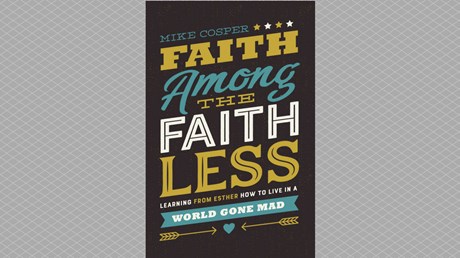The life the Bible offers is not one that is safe from the tragedies of the world, but one in which God suffers with us and accompanies us through our hardships.

1. Secularism denies real transcendence. It might allow for the possibility of the experience of transcendence, but it must explain it via these material causes: What we call transcendence or religious experience is actually some combination of good hormones and happy neurons in the brain. It has some evolutionary cause— some root in the need to advance and preserve our species that has been written into our DNA. (pg. 13)
2. Secularists can tolerate religion as long as it doesn’t make claims on anyone else’s happiness or welfare— that is, as long as it doesn’t purport to be an all- inclusive picture of the good life. (pg. 14)
3. This is how most of our desires work: Through cultural stories, we’re offered images of the good life: pathways to love, romance, sexual fulfillment, power, money, and happiness. These stories grab hold of our hearts, and they shape what we think we want. (pg. 19, referring to James Smith, You Are Wheat You Love, 11-12)
4. When God’s people face opposition, including the cultural opposition Christians face today from a post- Christian world, the path of least resistance is the path of compromise. It’s a foot in both worlds. I’ll give you an ethical compromise here so long as you let me speak of faith in public. But if history teaches anything, these compromises always end in weakening the church’s prophetic witness. (pg. 39)
5. Rather than an ethnically and culturally bonded community, the church’s bond is to be around the gospel, which creates a new family, one in which people are radically committed to one another’s inclusion and well- being. This new family is to be marked by generosity, diversity, and love. (pg. 42)
6. Just as ...
from
http://www.christianitytoday.com/edstetzer/2018/may/20-truths-from-faith-among-faithless.html
No comments:
Post a Comment